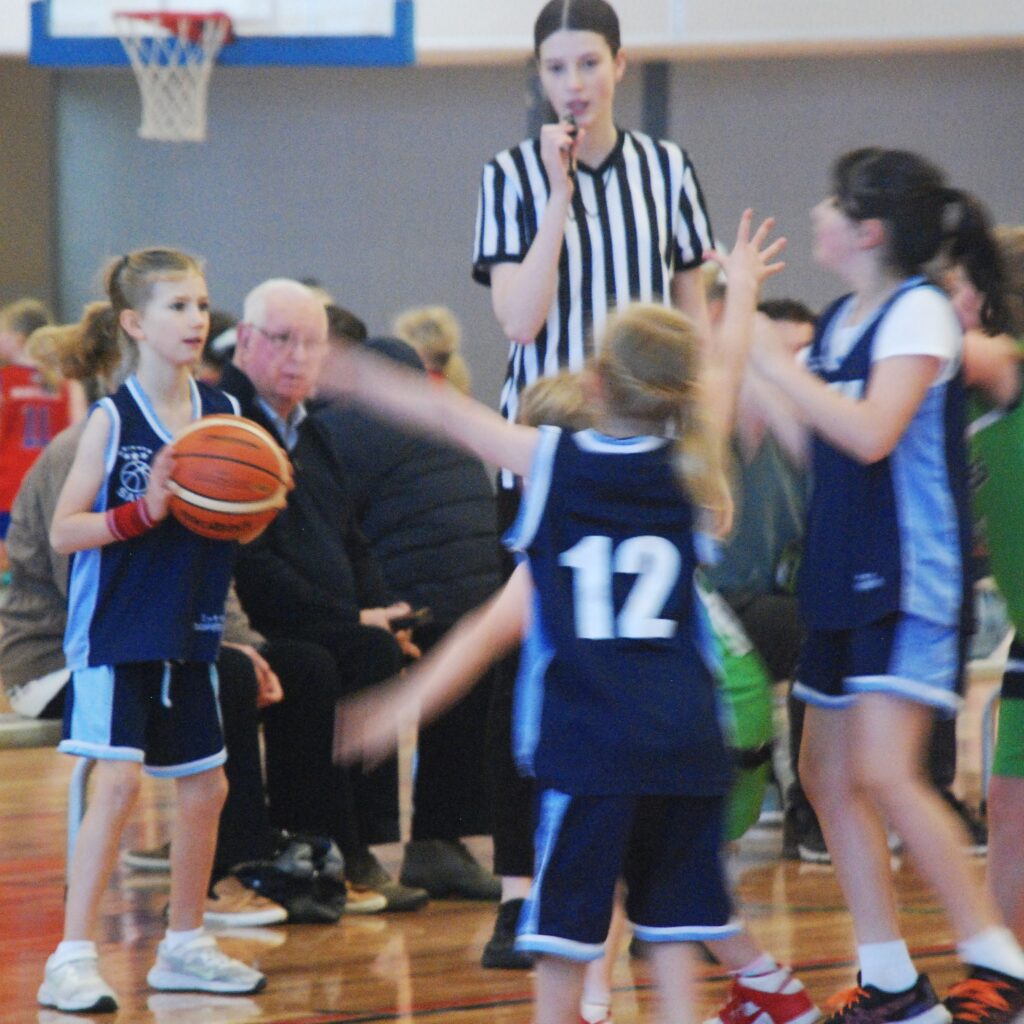Our rules and policies
On game day, we’re on the court to have fun and compete fairly with other teams in the competition.
We expect players, parents and coaches to follow our code of conduct and know that there is a disciplinary process if they do not live up to our values.
Our code of conduct
Players

- Never argue with an official. If you disagree, have your coach or manager approach the referee during a break or after the game in an appropriate manner.
- Control your temper. Verbal abuse of officials or other players, deliberately distracting or provoking an opponent is not acceptable or permitted in basketball.
- Be a good sport. Acknowledge all good plays whether they are by your team or the other team.
- Work equally hard for yourself and for your team, and co-operate with your coach, team-mates and opponents.
- Be prepared to lose sometimes. Everyone wins and loses at some time. Be a fair winner and a good loser.
Parents
- Teach children that an honest effort is as important as victory, so that the result of each game is accepted without undue disappointment.
- Encourage children to always play by the rules.
- Do not criticise your children in front of others, but reserve constructive criticism for more private moments.
- Do not publicly criticise or berate any children in your team or the opposing team.
- Do not criticise the coaching of your team in front of your children; choose an appropriate time to raise your concerns privately with your coach.
- Accept decisions of all referees as being fair and called to the best of their ability. Do not raise issues of disagreement publicly.
- Applaud good play by all teams and do not criticise opposing team members or supporters by word or gesture.
- Do not become involved in a dispute with other parents. If you have an issue with unacceptable behaviour of parents from the opposing team (while scoring or spectating), refer the matter immediately to the umpire.
- Set a good example by your own conduct and behaviour.
Coaches
- Be reasonable in your demands on young players time, energy and enthusiasm.
- Teach your players that rules of the game are mutual agreements, which no one should evade or break.
- Develop team respect for the ability of opponents as well as for the judgement of officials and opposing coaches.
- Be aware of the role of the coach as an educator. As well as imparting knowledge and skills, promote desirable personal and social behaviours.
- Aim to give all players reasonable court time.
- Remember that children play for fun and enjoyment and that winning should only be part of their motivation.
The team bench
- The bench is there for players not on the court playing, and the coach.
- The coach is responsible for everyone who sits on the bench.
- Comments or actions by anyone who sits on the bench, if in the judgement of the referee are derogatory to players, the other coach or the referees, could be penalized by a bench technica
Disciplinary process
If the behaviour of a player or group of players, either on or off the court, at training or at games, is considered by the coach to be unacceptable, then the coach will:
- Warn the player
- Seek the help of the team manager or supervising parent
- Ask the parents of the player(s) to attend training and/or games
- Bench the player(s) for part or all of the current or following match
If the coach and/or team manager feel that the above measures have not been successful, the club committee will become involved. After consultation with all concerned, the committee will make the necessary decisions about the future of the player(s) or the team. If unacceptable behaviour occurs at a game, the matter may be referred to the Camberwell District Basketball Association tribunal.
Camberwell District Basketball Association resources
See the Camberwell Basketball website for:
- Policies and rules including competition rules
- Code of conduct
Basketball Victoria’s code of conduct
Please refer to the Basketball Victoria Code of Conduct document for the expected behaviours in for administrators, coaches, officials, players, parents and spectators.
